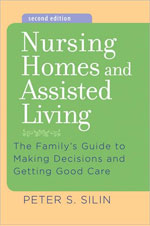Eldercare Expenses and Claims
Below is a fact sheet I cut and pasted from Revenue Canada's website.
Many people are not aware of the expenses they can claim or that they can sometimes benefit from their relatives expenses if claimed through the disability tax credit. Consult your accountant, or start at the Revenue Canada page. Here is a link you can use:
http://www.cra-arc.gc.ca/formspubs/clientgroup/individuals/seniors-e.html
Fact Sheet
April 2003
Seniors who are eligible to claim the disability amount can claim attendant-care expenses paid to a retirement home as a medical expense
Starting with the 2002 tax year, seniors who are eligible to claim the disability amount and who live in a retirement home can claim attendant care expenses as a medical expense.
There is no change to the basic rules to claim the costs of attendant care (guide RC4064, Information Concerning People with Disabilities). What's new is that for 2002 and later tax years, the rules also apply to seniors who are eligible to claim the disability amount and who receive part-time attendant care in a retirement home. This is not reflected in the 2002 version of the guide, but it will be part of the updated guide for the 2003 tax year.
The following must be provided for a claim to be allowed:
Proof of payment, such as a receipt, that shows the actual amount paid specifically for attendant care (as opposed to rent, for example). As the service provider, the retirement home should determine the amount paid specifically for attendant care.
The senior must be eligible to claim the disability amount by having Form T2201, Disability Tax Credit Certificate, certified by a qualified person and approved by the Canada Customs and Revenue Agency (CCRA).
Generally, attendant care covers the salaries and wages paid to employees of a retirement home who provide the following:
health care
meal preparation
housekeeping for the resident's personal living space
laundry services for the resident's personal items
transportation driver
security (in secured units)
The claim for attendant care is the portion of the salary and wages of all such attendants that can reasonably apply to the senior, but is limited to $10,000 per year ($20,000 in the year of death). The claim for attendant-care expenses can be made in addition to amounts claimed under the Disability Tax Credit.
Eligible seniors who have already filed their 2002 tax return can request an adjustment by visiting our Web site at ccra.gc.ca/tax/individuals/faq/t1adj-e.html. A request for adjustment can also be made by sending in a completed Form T1-ADJ, T1 Adjustment Request or a signed letter that explains the request. The letter must include the senior's social insurance number, address, a daytime phone number, and the supporting documentation.
In addition, this attendant-care change applies to past tax years if a Notice of Objection (an appeal) has already been filed but has not yet been ruled on, or if a Notice of Objection can still be filed for the tax year(s) in question. For information on appeals, visit the CCRA Web site at ccra.gc.ca or see the pamphlet called Your Rights. The pamphlet is available on our Web site or you can order it by calling 1-800-959-2221.
For general tax enquiries, call 1-800-959-8281.
This document is also available for download in .pdf format.
To receive notification by email when news releases, fact sheets or tax tips are added to our Web site, you can subscribe to our electronic mailing list.
For media information
Labels: Taxes and Expenses in Eldercare



